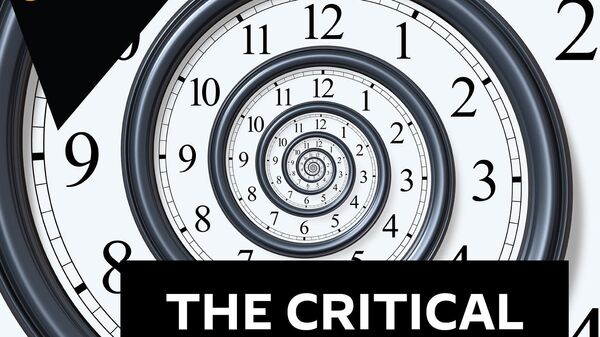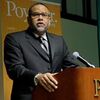From the Republicans at the party's convention, we're hearing the "Trump Show," not the "Republican Show." They are not telling us, during some of the most perilous times in recent memory, how they will make our lives better. Last week at their convention, the Democrats said US President Donald Trump is evil and that we need to focus on decency, morality and dignity. Rev. Al Sharpton said last week that Democratic presidential nominee Joe Biden’s speech was wonderful. He talked about the darkness that has engulfed the US and how he’s going to bring light to the nation. That’s great, lofty rhetoric and metaphor, but regarding a family actually sitting in the darkness because Mom and Dad have lost their jobs and could not pay the utility bill, how are the Democrats going to get money into their checking account so that they can actually turn the lights on?
Kyle Rittenhouse, 17, has been charged with first-degree intentional homicide for the shooting deaths of two people in Kenosha, Wisconsin, this week during protests. "The shooting came as self-declared militia members and armed counter protesters have appeared in the city, which is reeling from days of unrest," the Washington Post reported Wednesday. Does this incident playing out in American streets tell us anything about where we are as a country and where we are headed?
"China doesn’t want Trump to win in November, according to William Evanina, Director of the National Counterintelligence and Security Center (NCSC)," MintPress News reported Wednesday. "Russia, on the other hand, is 'using a range of measures' to undermine Joe Biden’s candidacy. The intelligence official also accuses China of “expanding its influence” ahead of the 2020 US presidential election, but only to 'deflect and counter criticism' as opposed to a direct attack on the incumbent. As the election nears, calls for bolstering cybersecurity efforts from the US military establishment and other quarters are intensifying." Are the real threats to the November 3 election external or internal?
"China has fired missiles into disputed territory in the South China Sea today, which officials say are meant to be a 'warning' to the US after a U-2 spy plane intruded on China’s naval drill in the area, entering a no-fly zone," Antiwar.com reported Wednesday.
German Foreign Minister Heiko Maas "agreed with his Israeli counterpart Thursday that an effort must be made to extend a weapon embargo on Iran, while stressing Germany still sees the landmark 2015 deal between Tehran and world powers as the best way to prevent the country from obtaining a nuclear weapon," the Associated Press reported Thursday. How can both statements exist in the same realm of reality?
A Wednesday headline in Defense News read: "US nuclear weapons budget could skyrocket if Russia treaty ends." The article noted, "The New START nuclear pact’s demise could cost the Department of Defense as much as $439 billion for modernization, plus $28 billion in annual maintenance costs, the Congressional Budget Office said in a report published Tuesday." What are we to make of this?
"Unemployment claims fell slightly last week but remained historically high, signaling layoffs continue as the coronavirus continues to hamper the economic recovery," the Wall Street Journal reported Thursday. What does this mean for the US going forward?
There’s an interesting article in Mother Jones entitled "An Eviction Wave Could Wreak Havoc on Voting by Mail." The subhead says, "Millions of Americans are expected to lose their homes — and, for many of them, an easy way to vote by mail." How will this affect the elections?
Guests:
Talib Karim - Former aide to members of Congress and CEO of Abe Legal, a platform for helping families and businesses survive the COVID-19 pandemic
Gary Flowers - Public policy analyst
James Carey - Editor and co-owner of Geopolitics Alert
Daniel Lazare - Investigative journalist and author of "The Velvet Coup"
EJ Magnier - Veteran Middle East war correspondent
Scott Ritter - Former UN weapons inspector in Iraq
Dr. Dania Francis - Professor of economics at the University of Massachusetts Boston
Richard Lachmann - Professor at the State University of New York at Albany and author of "First Class Passengers on a Sinking Ship: Elite Politics and the Decline of Great Powers"
We'd love to get your feedback at radio@sputniknews.com




